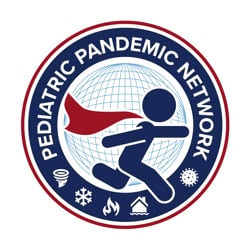Dengue Fever
What is dengue fever?
Dengue fever is a viral infection that spreads from mosquitos to people. It is most common in tropical and subtropical climates, but it is becoming more common in the United States. For this reason, the Centers for Disease Control and Prevention (CDC) issued an advisory about the infection in the summer of 2024.
What are the symptoms?
A person who has dengue fever may have the following symptoms:
- High fever
- Severe headache
- Pain behind the eyes
- Joint, muscle or bone pain
- Rash
- Mild bleeding, especially from the nose or gums
- Nausea and vomiting
Is dengue fever serious?
Only about 25% of adults and children infected with dengue fever will have symptoms. For those who do have symptoms, dengue fever can cause a lot of pain and discomfort, but most people who get it start feeling better after a several days. Full recovery may take few weeks.
In some people, a more serious form of the infection may develop. This is called dengue hemorrhagic fever. If your child with dengue fever starts having severe pain, difficulty breathing, or severe bleeding, they need medical attention right away.
How do people get dengue fever?
A person can get dengue fever when they're bitten by a mosquito carrying the infection. When a mosquito bites a person who is infected with the dengue virus, it becomes a carrier of the virus. It can infect new people with the virus when it bites them.
Symptoms usually show up 4 to 10 days after a person is bitten by an infected mosquito.
Dengue fever is not contagious, meaning it cannot spread directly from one person to another.
When should I call my child's doctor?
If you think your child may have dengue fever, call a doctor right away. It is important to catch the infection early so that it can be treated.
If your child has dengue fever and starts having severe symptoms, such as shortness of breath, severe bleeding, or severe pain, they need to be seen right away.
How can dengue fever be prevented?
The best way to prevent dengue fever is to avoid mosquito bites. Here are some ways to prevent bites:
- Wear long-sleeved shirts, long pants, shoes, and socks when you are outside.
- Use mosquito repellents on exposed skin and clothing. The American Academy of Pediatrics provides guidance for how to choose a safe and effective insect repellent for your child.
- Use screens on doors and windows. Keep unscreened doors and windows shut.
- Limit the amount of time you spend outside, especially in the hours around dawn and dusk, when mosquitos are most active.
- Mosquitos lay eggs in standing water. Get rid of water that may be collecting outdoors, such as in gutters or birdbaths.
What does the CDC advisory mean?
Because there have been more cases in the United State in 2024 than in previous years, the CDC wants health care providers to be more aware of it. The symptoms of dengue fever can be similar to other infections, and the CDC wants health care providers to think about whether dengue fever could be the cause when they see these symptoms. Doctors and other health care providers should test for dengue fever if they think it may be what is causing an infection.

Pediatric Pandemic Network
Children's Mercy Kansas City is a member of the Pediatric Pandemic Network, a network that strives to coordinate, prepare, and enable high-quality, equitable, research-based pediatric care in emergencies, disasters and pandemics. The Pediatric Pandemic Network is supported in part by the Health Resources and Services Administration (HRSA) of the U.S. Department of Health and Human Services (HHS).
